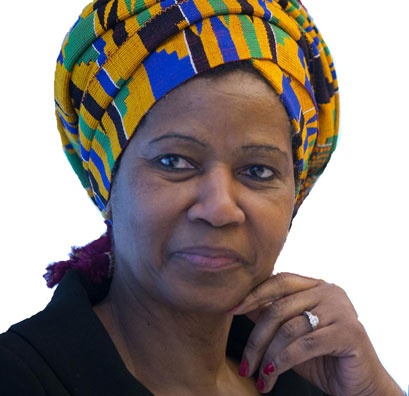|
Opinion :
Turn words into action involving women for lasting peace
by Phumzile Mlambo-Ngcuka
UN Under-Secretary-General and UN
Women Executive Director
We have recently celebrated the peace deal struck between the
Government in Colombia and the main guerrilla group. The deal reached on
justice issues represents the clearest sign yet of a possible end to
five decades of conflict. Less is said about the multiple constructive
ways in which Colombian women have participated in, and influenced,
these negotiations or mobilized for peace, including the many meetings
held by women survivors with the women in both negotiating teams.
Similarly, few people know that last year also saw the end of another
decade-long conflict in The Philippines between the Government and the
Moro Islamic Liberation Front, in peace talks where more than a third of
negotiators were women; far above the norm in official peace talks,
which are typically either all-male affairs or include very few women.
|

Pic - newafricanmagazine.com |
Their participation was built on a long history of women's leadership
at the local and national levels in The Philippines over the years,
including under the leadership of two women presidents who both invested
political capital in resuming negotiations with the rebel group.
As tensions threaten Burundi's fragile peace, Burundian women quickly
organized themselves in a nationwide network of women mediators to quell
or mitigate the myriad local disputes and prevent escalation.
In 129 municipalities across the country, they addressed, by their
count, approximately 3,000 conflicts at the local level in 2015,
including mediating between security forces and protesters, advocating
for the release of demonstrators and political prisoners, promoting
non-violence and dialogue among divided communities, and countering
rumours and exaggerated fears with verifiable information to prevent
widespread panic. UN Women has been proud to support these efforts.
These are not isolated stories. A comprehensive study prepared for
the fifteenth anniversary of Security Council resolution 1325, a
landmark resolution that recognized the role of gender equality and
women's leadership in international peace and security, makes the
strongest case to date that gender equality improves our humanitarian
assistance, strengthens the protection efforts of our peacekeepers,
contributes to the conclusion of peace talks and the sustainability of
peace agreements, and accelerates economic recovery after conflict.
It compiles growing evidence accumulated by academic researchers that
demonstrateshow peace negotiations influenced by women are much more
likely to end in agreement and to endure. In fact, the chances of the
agreement lasting 15 years goes up by as much as 35 per cent.
Where conflict-affected communities target women's empowerment they
experience the most rapid economic recovery and poverty reduction and
greatly improvedbroad humanitarian outcomes, not just for women and
girls but for whole populations.
In a world where extremists place the subordination of women at the
centre of their ideology and war tactics, the international community
and the UN should place gender equality at the heart of its peace and
security interventions. Beyond policies, declarations and aspirations,
gender equality must drive our decisions about who we hire and on what
we spend our money and time.
It is clear that we must strive for tangible changes for women
affected by war and engage the grossly underused capacity of women to
prevent those conflicts. Countries must do more to bring women to the
peace table in all peace negotiations. Civil society and women's
movements have made extraordinary contributions to effective peace
processes. We know that when civil society representatives are involved
in peace agreements, the agreements are 64 per cent more likely to be
successful and long-lasting.
It is time to put a stop to the domination of peace processes by
those who fight the wars while disqualifying those who stand for
peace.It is time to stop the under-investment in gender equality.
The percentage of aid to fragile states targeting gender equality as
a main goal in peace and security interventionsis only two percent.
Change requires bold steps, and it cannot happen without investment.
Now that time has come. On 25 September,the countries of the United
Nations adopted the 2030 Agenda for Sustainable Development, which
expresses determination to "ensure that all human beings can fulfil
their potential in dignity and equality" andto "foster peaceful, just
and inclusive societies that are free from fear and violence".
Two days later, 72Heads of State and Government attended our Global
Leader's Meeting to underline top-level support for gender equality and
commit to specific action.
And on 13 October, the Security Council will celebrate the fifteenth
anniversary of resolution 1325 and inject new energy, ideas, and
resources into women's leadership for peace.
In a world so afflicted by conflict, extremism, and displacement, we
cannot rely only on the ripples of hope sparked by the extraordinary
acts of ordinary people.
We need the full strength of our collective action and the political
courage of the leaders of the international community. Anniversaries,
after all, must count for more than the passing of years.They must be
the moment for us to turn words into action.
(In celebration of the 15th anniversary of
Resolution 1325, a landmark resolution on women, peace and security
adopted by the UN Security Council in October 2000) |

